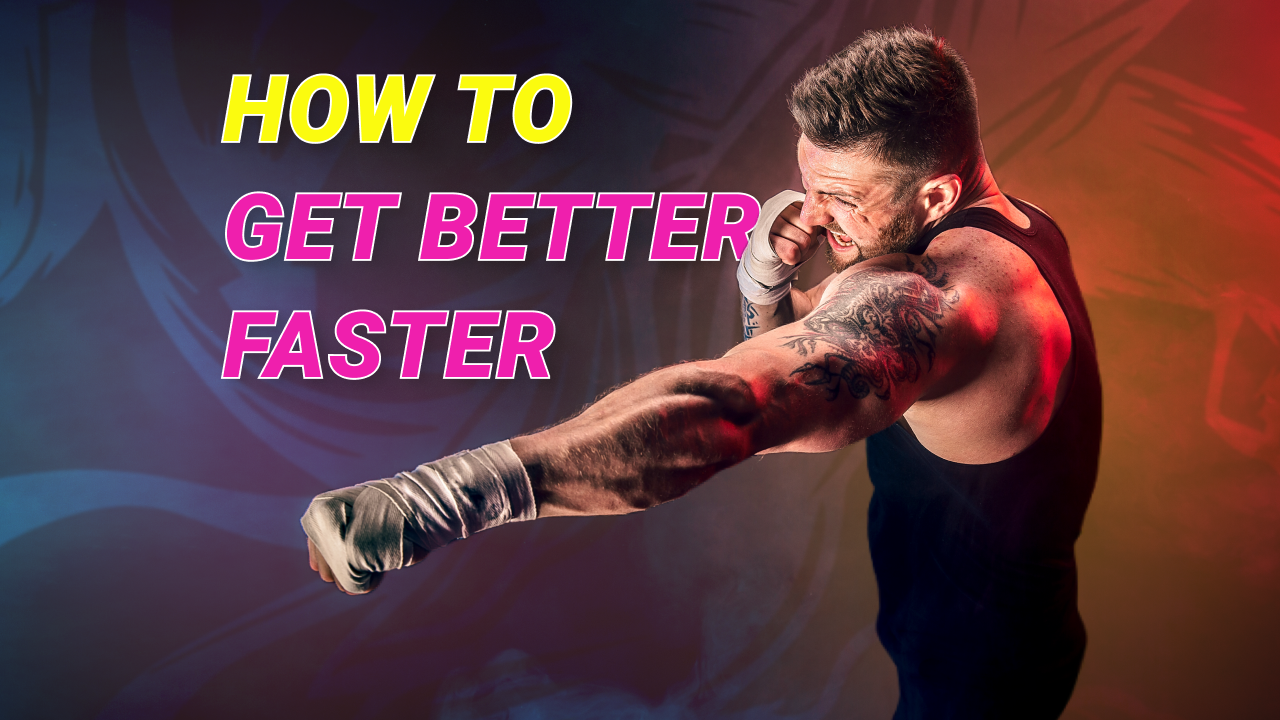How to Get Better Faster

From the moment you decide to start training in a martial art, you need to understand that it is a journey. That journey is what shapes you and what makes you better. It requires time and dedication.
Putting in the hours is absolutely necessary if you want to grow as a fighter, gain an understanding of fight dynamics, and improve your timing. However, there are traps that people can fall into that eat into their gains, and there are methods of training that are less effective than others. Conversely, there are also ways of training that can help you establish good habits and use the time you spend training more efficiently. This will result in you becoming better at a faster rate than others.
As Coach Firas Zahabi of Tristar Gym in Montreal explains in the above video, two of the best ways to get better faster are to keep things playful when you’re sparring and to never stop tightening up your execution of the basics.
Don’t Go 100% When You Spar
You don’t typically think of martial arts as being a team sport. Especially in shows and movies, you tend to see the fighter as a solitary figure who is only joined by a trainer or maybe a sidekick. Their achievements are presented solely as personal achievements. They are individuals who have to face their opponents alone.
This isn’t totally true. As much as martial arts is about self-improvement and tournaments involve one-on-one contests, you don’t train in a vacuum. You need sparring partners. For jiu-jitsu, you need someone to roll with. You’re not going to become an elite fighter by throwing punches at a cut of meat in a freezer like Rocky Balboa. You need support from other members of your gym, and they need you. Since they are such an integral part of your development, you should learn how to make the most of your time training with other people at your gym.
As Coach Firas notes, this won’t happen if you are constantly trying to pummel your sparring partner or acting like you’re fighting for your life. You’re not. You are training, so you should keep things playful.
From his own experience, Coach Firas learned that going full throttle did not help him. There were two reasons why. First, he frequently knocked out or injured his partner, which effectively ended the sparring session. As a result, he was spending a lot of time when he should have been training standing around without a partner. Second, people started to avoid him because he went too hard. Not a lot of people wanted to train with him, which only weakened his game. After all, the more people you can train with, the more variations of technique you’ll learn to defend against.
More importantly, sparring or rolling is a learning exercise. It’s where you get the chance to experiment and refine your technique. It’s where it’s okay to lose because nothing bad is going to happen to you. It’s a time when it’s okay to ask questions and to treat your opponent like a partner rather than an adversary because that’s precisely what they are. Using your training time in this manner will make you a more well-rounded fighter and improve your game.
Building a Strong Foundation
Sticking to the fundamentals is crucial for success, especially when you’re just starting out. You need to work your way up to the more advanced moves, and that means building a foundation that is grounded on the basics of whatever your martial art of choice is. It doesn’t matter if its boxing, wrestling, or jiu-jitsu.
“If you don’t have strong basics,” Coach Firas says, “you’ll get passed by.” What he means by this is that you will find yourself getting outmaneuvered and beaten by guys who may have way less experience than you. You could be someone who has trained for five years, but if you don’t have that foundation to rely on, you will regularly get beaten by guys who have been training for a few years but have a solid foundation.
As Coach Firas explains, the basics are maneuvers that are used by white belts all the way up to black belts. The basics are the moves that everyone uses and any gap or weakness in one of these fundamental moves is going to be exploited by an opponent. You can be the one who exploits the opening or the one who ends up leaving a window open for your opponent.

